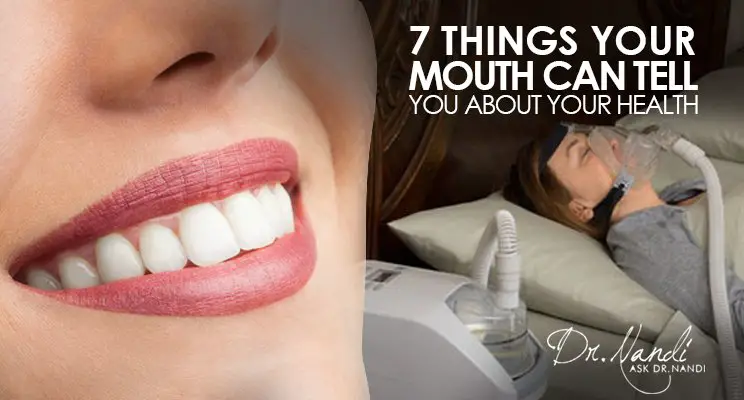Most of us brush and floss our teeth at least twice a day to keep them sparkling clean, in tip-top condition, and our breath feeling fresh. But more importantly than just having a gleaming smile, looking after oral health can help prevent disease and other conditions such as tooth decay, gum disease, and oral infections.
The human mouth is awash with what are mostly harmless bacteria. But without good oral hygiene, many of these bacteria can enter the digestive and respiratory tract and may cause infection. According to The Global Burden of Disease Study 2017, oral diseases affect approximately 3.5 billion people worldwide. (1,2)
Our natural immune system, plus daily brushing and flossing, can keep bacteria under control and help prevent those conditions.
Good oral health can be the gateway for overall health and can alert us to potential illness or disease throughout the rest of the body. By paying attention to what is going on with our oral health, cues and clues can guide us to potential problems elsewhere.
Follow our newsletter to learn ways to lead a healthier lifestyle, helping you avoid the pitfalls of poor health and hygiene.
What Can Our Dental Care Tell Us About Our Overall Health?
Oral health is an often neglected part of our overall health, with many people avoiding necessary dental procedures and regular check-ups. As a result, conditions that may affect our wellbeing can go unnoticed, with treatments or simple preventative measures becoming more complicated.
Here are seven things your mouth can tell you about your health:
- Lots Of Cavities In A Previously Cavity-Free Mouth – You may have Diabetes:
Diabetes can lead to various complications throughout the body, such as gum disease and tooth decay. Similarly, good oral health is essential because the chronic inflammation caused by periodontal disease may result in insulin resistance and high blood glucose levels, which in turn make diabetes harder to manage. Diabetes also leads to swollen gums, creating gaps between the teeth and gums where bacteria and fungal infections can form.
To further complicate matters, the chances of infection are increased because diabetes generates high levels of sugar in the saliva, feeding infection and making further contamination more probable. The sugar-rich saliva also means a greater risk of tooth decay. (3)
- Bleeding gums/Periodontal disease – Risk of heart disease:
Poor oral health may lead to cardiovascular disease. Some studies have suggested that bacteria in the mouth that cause gum disease can move to other parts of the body, leading to blood vessel inflammation and damage. When this occurs, the risk of blood clottings, heart attack, and stroke may increase by up to 20%. (4)
- Tooth erosion – Possible causes – GERD (gastroesophageal reflux disease):
GERD is a chronic condition where a person experiences persistent heartburn and other symptoms like indigestion, chest pain, bad breath, a sour taste in the mouth, burning in the throat, and possible respiratory problems. Acid reflux/heartburn happens to everyone at some point, but if it happens regularly, it may be a sign you have GERD.
Tooth erosion can happen when stomach acid wears down tooth enamel and can induce decay, cavities, sensitive teeth, and discoloration. Following good oral hygiene is the best way to prevent acid reflux or GERD from damaging your teeth and causing decay. (5) Visiting your dentist for regular check-ups and advice can help combat GERD.
- White Spots On Tongue – Oral thrush (also called oral candidiasis):
If you have white lesions on your tongue, it may mean you have oral thrush, which is a candida (yeast) infection in the mouth. Candida is a normal condition, but it can overgrow and cause white spots on the tongue, sometimes spreading to the roof of the mouth, gums or tonsils, or the back of the throat. It is more common in babies, toddlers, or older adults but can happen to anyone, particularly if they have diabetes type 2, a weak immune system, or a dry mouth.
If lesions spread into the esophagus at the back of the mouth, down to the stomach, or there is difficulty swallowing or pain in the area, it may suggest something more serious. Further investigation by a medical professional is required. (6)
- Worn Down Teeth – Possible causes – Sleep apnea:
Sleep apnea is a sleeping disorder where breathing is interrupted, frequently stopping and starting. One of the first symptoms of sleep apnea is teeth grinding, also known as bruxism. Worn-down teeth are a sign that someone grinds their teeth. Sleep apnea is a potentially serious condition, and in severe cases, sufferers may require a breathing apparatus to help them sleep properly. (7) - Lesions On The Lips And Inside The Mouth – HPV (human papillomavirus):
HPV (human papillomavirus) is the most common sexually transmitted infection in the United States, with approximately 43 million cases in 2018. (8) HPV spreads from an infected person through skin-to-skin contact and most commonly through sexual intercourse. However, an infection can also take place through oral sex. Lesions on the lips and inside the mouth are symptoms of oral HPV. In most cases, HPV is harmless and will go away on its own. However, in more severe cases, HPV may lead to cancer. (8)
- Cavities + Tooth Erosion – May indicate malnutrition:
Malnutrition happens when the body is starved of nutrients, most often by a lack of food or an unhealthy diet. When the body is malnourished dental cavities, gum disease, and tooth erosion can develop. Teeth and gums are a living part of the body, and a nutritious diet, along with good oral hygiene, can help strengthen and protect them from harmful acids that may cause decay. If a person cannot absorb nutrients from their diet, malnutrition can develop, often connected to an underlying condition. Working with a healthcare professional to get to the root of the problem is essential, and an early diagnosis can prevent serious illness. (9)
Follow Our Newsletter For Great Advice
Dr. Nandi’s newsletter offers professional advice and expert guidance, covering a wide range of health and wellness topics, including oral health care. Sign up today for free and receive regular updates!
Sources
- https://www.who.int/health-topics/oral-health#tab=tab_1
- https://www.healthdata.org/sites/default/files/files/policy_report/2019/GBD_2017_Booklet.pdf
- https://www.mayoclinic.org/diseases-conditions/diabetes/in-depth/diabetes/art-20043848
- https://www.ncbi.nlm.nih.gov/pmc/articles/PMC3100856/
- https://www.agd.org/public/OralHealthFacts/files/pdfgenerator.aspx?pdf=AGD-FactSheet-Acid-Reflux.pdf&id=172265#:~:text=Practicing%20good%20oral%20hygiene%20is,for%20a%20tooth%20enamel%20evaluation.&text=Use%20a%20toothpaste%20that’s%20formulated%20for%20sensitive%20teeth.
- https://www.medicalnewstoday.com/articles/178864#symptoms
- https://www.mayoclinic.org/diseases-conditions/bruxism/symptoms-causes/syc-20356095#:~:text=Sleep%20bruxism%20is%20considered%20a,in%20breathing%20(sleep%20apnea).
- https://www.cdc.gov/std/hpv/stdfact-hpv.htm
- https://www.nhs.uk/conditions/malnutrition/causes/











 Subscribe to Ask Dr. Nandi YouTube Channel
Subscribe to Ask Dr. Nandi YouTube Channel









